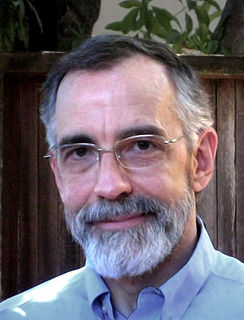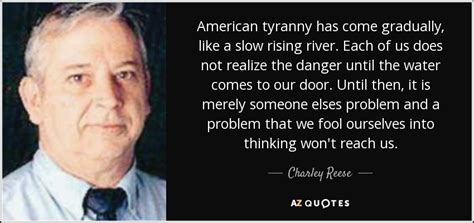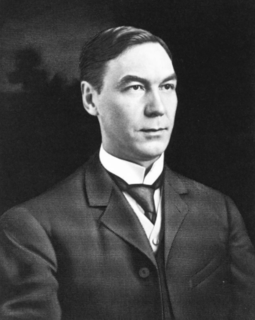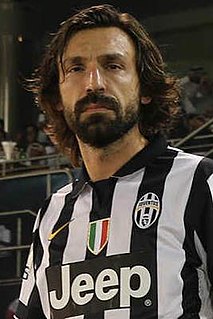A Quote by K. Eric Drexler
After realizing that we would eventually be able to build molecular machines that could arrange atoms to form virtually any pattern that we wanted, I saw that an awful lot of consequences followed from that.
Related Quotes
And just think, fellow Southrons, what kind of a Confederate nation we could have, if after independence, politicians abandoned equivocation and spoke honestly and firmly on all issues? If they were to do their duty to God, nation, and people, there would be virtually no need for any form of federal litigation.
It is possible to express the laws of thermodynamics in the form of independent principles , deduced by induction from the facts of observation and experiment, without reference to any hypothesis as to the occult molecular operations with which the sensible phenomena may be conceived to be connected; and that course will be followed in the body of the present treatise. But, in giving a brief historical sketch of the progress of thermodynamics, the progress of the hypothesis of thermic molecular motions cannot be wholly separated from that of the purely inductive theory.
If you search the scientific literature on evolution, and if you focus your search on the question of how molecular machines - the basis of life - developed, you find an eerie and complete silence. The complexity of life's foundation has paralyzed science's attempt to account for it; molecular machines raise an as-yet-impenetrable barrier to Darwinism's universal reach.
For the moment, machines able to 'think' in anything approaching a human sense remain science-fiction. How we should prepare for their potential emergence, however, is a deeply unsettling question - not least because intelligent machines seem considerably more achievable than any consensus around their programming or consequences.
One way to determine if a view is inadequate is to check its consequences in particular cases, sometimes extreme ones, but if someone always decided what the result should be in any case by applying the given view itself, this would preclude discovering it did not correctly fit the case. Readers who hold they would plug in to the machine should notice whether their first impulse was not to do so, followed later by the thought that since only experiences could matter, the machine would be all right after all.
The Universal mind is not only intelligence, but it is substance, and this substance is the attractive force which brings electrons together by the law of attraction so they form atoms; the atoms in turn are brought together by the same law and form molecules; molecules take objective forms and so we find that the law is the creative force behind every manifestation, not only of atoms, but of worlds, of the universe, of everything of which the imagination can form any conception.
I wanted to be a visual artist, but I realized I was more affected by what I read than by what I saw. I would go to a show at a museum and look at a painting and say, 'Oh I wish I owned that,' and that would be the end of my relationship with a painting. With a short story I would read or with an author I would discover I could be haunted. It would affect my mood and affect the way that I saw the world. I thought, wow, it would be amazing to be able to do that.
The universe and the Laws of Physics seem to have been specifically designed for us. If any one of about 40 physical qualities had more than slightly different values, life as we know it could not exist: Either atoms would not be stable, or they wouldn't combine into molecules, or the stars wouldn't form heavier elements, or the universe would collapse before life could develop, and so on...




































